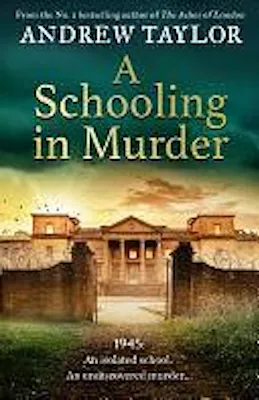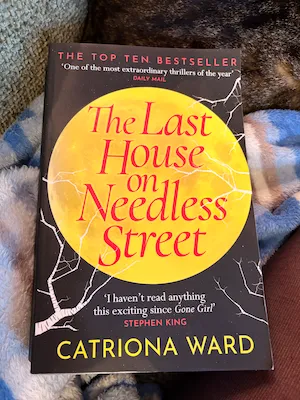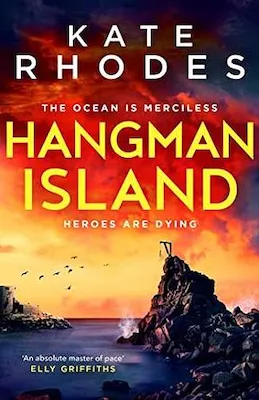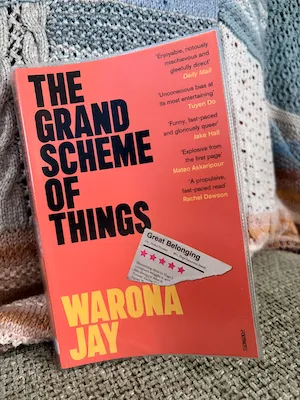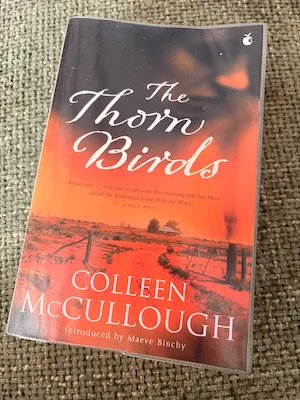The Saturday Morning Murder: A Psychoanalytic Case
by Batya Gur
Thursday, May 16, 2002
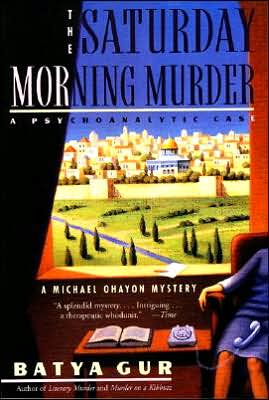
[My comments are taken from a mailing list discussion and as such contain spoilers!]
[on the characters]
I’m not done with the book yet but I’m finding the setting to be the most disappointing part of the book. I was looking forward to learning something of Israel and Jerusalem but the places haven’t come alive for me really. My reasoning is that since the book was originally written in Hebrew the author expected her readers to have reasonable knowledge of the area in which it was set and didn’t put in very much in the way of “sightseeing” descriptions. It seems to me that the book could be transposed to another city without losing very much atmosphere.
Alternatively, if you take the setting to be the psychoanalytic world instead of the physical location then I’m finding the setting to be mostly interesting and enjoying finding out how this weird training system works and what everybody thinks of it.
As for the characters I’m finding the story a bit bitty to follow because we no sooner seem to meet someone than they vanish again. We get to know Hildesheimer for a couple of chapters and then he wanders off into the background. I thought Joe Linder was an interesting person while he was in the foreground but then he went off backstage too.
So I’ve been trying to get to know the police characters as they will no doubt be the ones who reappear through the series. I quite like Michael though I haven’t really got a handle on the way he deals with things yet, he seems to have plenty of depth to his character though and I like the way bits of his private life are included. I thought Eli and Tzilla were the other characters to remember but in the part I’ve just read (about 2/3rds of the way through) a whole stack more police seemed to appear and I’m getting rather confused.
So far I’d rate Gur as a little below average on both characters and setting but I’m willing to give the book/series a chance to pick up.
[on the plot]
One of the things that struck me about this book was that I always expected the author to play fair with the reader. Even though I haven’t any previous experience of the author it just didn’t feel like a book where the ending was going to appear out of a cloud of smoke. So the resolution definitely worked for me because it all seemed to be there beforehand and the pieces came together nicely at the end.
The plot seemed quite plausible and I liked the way the motivations of the criminals were directly related to the setting. As well as Silver killing to cover up the fact that she was abusing her position as a psychoanalyst, the major red herring of Alon breaking into Neidorf’s house happened because he wanted to cover up the fact that he was undergoing therapy. That link means that this story could only have happened in this setting and that’s a major point in favour of this plot with me.
[on pacing]
I thought the book went really slow to start with and I started skim reading a little and putting the book down and not really wanting to pick it up again. But each time I picked the book up I liked it a bit more than the time before and found the pace sped up throughout the story. Partially I think this was due to me getting used to Gur’s style of writing but I also think the fact that time speeds up as you go through the book helped too, more things seemed to happen, thicker and faster as the book went on.
There definitely seemed to be more dialogue in the second half of the book than the first but I might be misremembering that. Definitely the scenes I remember from near the end such as Alon’s interrogation seemed to be written with more dialogue than had come before and that made them more memorable for me.
Oh, I also wanted to comment on the way that Shlomo Gold “bookends” the story being involved only at the beginning and the end. I think this device works quite well when you’ve *finished* the book but when you’ve just started it it throws you out of kilter. I can see why Gur thought it was good for her book structurally but I think it leaves the beginning of the book feeling a bit incomplete and that the book could have had a better opening.
[on this as a first book and the rest of the series]
I don’t think I found anything that marked this book out as a first book really, the writing flowed and the plot didn’t have any gaping holes in it as far as I was concerned. (I can see why other people think the break in at Neidorf’s house was a procedural error on Michael’s part but it didn’t seem that way to me, it seemed to fit the pace of the book that the police were slow in getting to the house and didn’t expect anyone to be there before them). I didn’t much care for the way characters appeared and disappeared or for the treacly slow pace at the beginning but on the whole I felt the author had made a conscious decision to write her story this way rather than doing what came easiest as a first time author.
Was this in fact Gur’s first book? Is it just the first one translated into English?
I like the concept for the series and am glad to find that the other books are set in similarly closed worlds to the world explored in this one. I can’t say that if I’d have read this book by myself I’d have been in a hurry to seek out the second but I’m quite looking forward to seeing what happens next now I’ve got some idea of what to expect and know some of the characters before the book begins.





